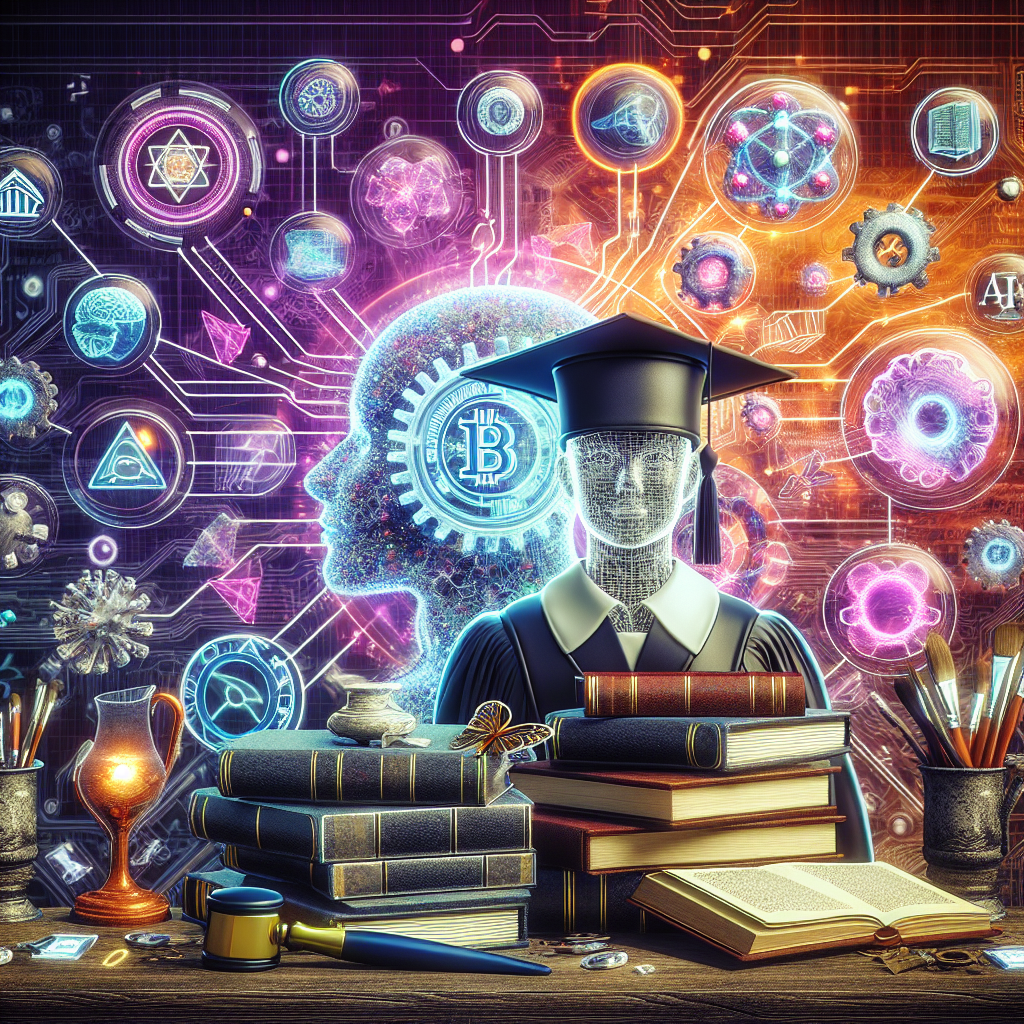Decentralized Science and AI: A Challenge for Traditional Institutions
In recent years, we have witnessed a seismic shift in the landscape of scientific research, driven by the emergence of decentralized science (DeSci) and the rapid advancement of artificial intelligence (AI). This convergence is posing significant challenges to traditional institutions, transforming how research is conducted, shared, and validated. In this blog post, we will explore how DeSci and AI are redefining the scientific process and the implications for established institutions in the field.
Understanding Decentralized Science
Decentralized science is a relatively new paradigm that leverages blockchain technology and decentralized networks to facilitate collaboration and transparency in research. This model fosters an open and accessible environment where data sharing becomes the norm rather than the exception. Some key features of decentralized science include:
The Role of Artificial Intelligence in DeSci
AI plays a pivotal role in advancing decentralized science by enhancing data analysis, facilitating collaboration, and automating processes. Here’s how AI is impacting the DeSci landscape:
The Challenge to Traditional Research Institutions
The rise of decentralized science and AI poses significant challenges to traditional research institutions, which have long maintained a monopoly over the scientific process. Some of the most pressing challenges include:
1. Disruption of Funding Models
Traditional funding sources, such as grants from government agencies and academic institutions, may struggle to compete with the innovative funding mechanisms emerging in the DeSci space. Decentralized platforms often utilize crowdfunding models, allowing a broader audience to support scientific initiatives directly. This shift could redirect funding from public and private institutions, presenting a formidable challenge to their traditional revenue streams.
2. Changing Publication Standards
In the traditional academic world, peer review and publication in reputable journals are seen as the ultimate validation of research. However, the open-access nature of DeSci allows for quicker dissemination of findings—often bypassing the lengthy peer-review process. This raises questions about the future of academic publishing and the value placed on traditional peer-reviewed research.
3. Erosion of Authority
Decentralized science empowers researchers and contributors from diverse backgrounds, minimizing the hierarchical structures prevalent in traditional institutions. This democratization of knowledge can lead to the erosion of authority, challenging established norms regarding who is deemed credible or trustworthy in the scientific community.
The Opportunities Presented by DeSci and AI
Despite the challenges posed to traditional institutions, the convergence of decentralized science and AI also brings numerous opportunities for innovation and improvement in research. Institutions can adapt and thrive by embracing these changes. Here are some potential benefits:
1. Increased Collaboration
Decentralized science promotes collaboration across geographical and disciplinary boundaries. Traditional institutions can leverage this to build networks, enhance partnerships, and expand their research capabilities.
2. Enhanced Transparency and Trust
By adopting decentralized methodologies and utilizing AI to analyze data, institutions can foster greater transparency in their research processes. This increased transparency can build trust with the public and stakeholders, reinforcing the reputation of traditional institutions.
3. Accelerated Innovation
The integration of AI can significantly enhance research efficiency and effectiveness. Institutions that adopt AI tools can streamline their operations, allowing for faster progress in research projects and accelerating the rate at which new discoveries are made.
Future Outlook: Navigating the Transition
As decentralized science and AI continue to reshape the scientific landscape, traditional institutions must navigate this transition thoughtfully. Here are some strategies for institutions aiming to remain relevant:
Conclusion
Decentralized science and AI are revolutionizing the research landscape, presenting both challenges and opportunities for traditional institutions. As these forces continue to evolve, institutions that adapt and embrace innovation will be best equipped to thrive in this new paradigm. By prioritizing collaboration, transparency, and technology adoption, traditional institutions can navigate the shifting scientific landscape and continue to play a vital role in the advancement of knowledge.
The marriage of decentralized science and AI heralds a new era of research, one that is more inclusive, efficient, and impactful. Only time will tell how traditional institutions can meet the challenge and leverage these changes to enhance their contributions to the scientific community.




